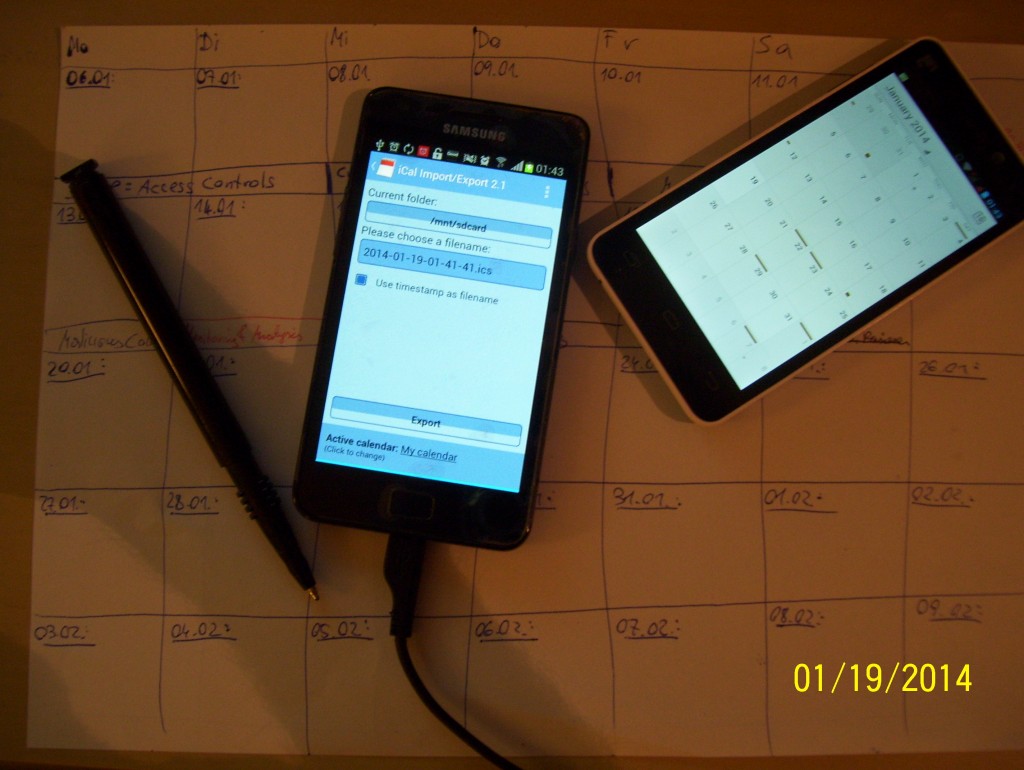It’s been a while since the last post in the series “Freiheit nehmen”. I was busy with working (Mobile Banking stuff) and reading (Andreas Huyssen : Present Pasts – Urban Palimpsets and the politics of memory). Moreover, I started to look into the Open Source Video platform Kaltura and blogged about it here. One word: Frustration. Mixed concentrations of it. Since I messed up the configuration, I wanted to restart the VM where Kaltura is installed. Unfortunately, I forgot the password that encrypts the VM. Now I have to start from scratch with a new VM.
That’s why I move on to another construction site. Migrating from Samsung S2 to Fairphone. There are problems at multiple levels:
- At a high level: I am carrying around two devices every day. It’s not a big tragedy during work, since I am working everyday with multiple smartphones. But for personal use this must really change.
- My contacts are not imported to Fairphone yet.
- My calendar syncronization got reverted, for whatever reason. (Maybe it requires the sync server to be up and running all the time.)
Let’s tackle it, in the end it was quite easy. I will share my knowledge. Plus bonus material: a journey through the data jungle of a device that I have used since 3 years


